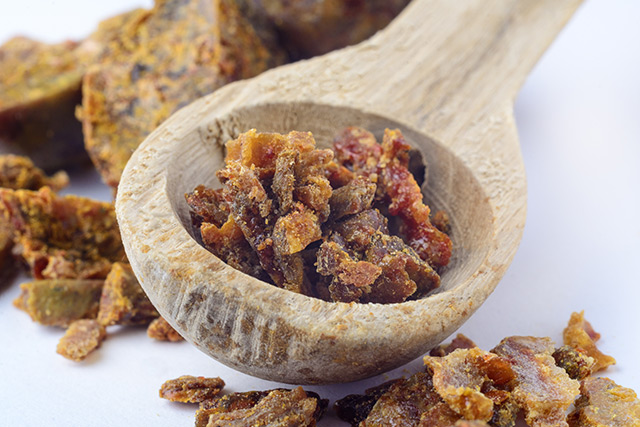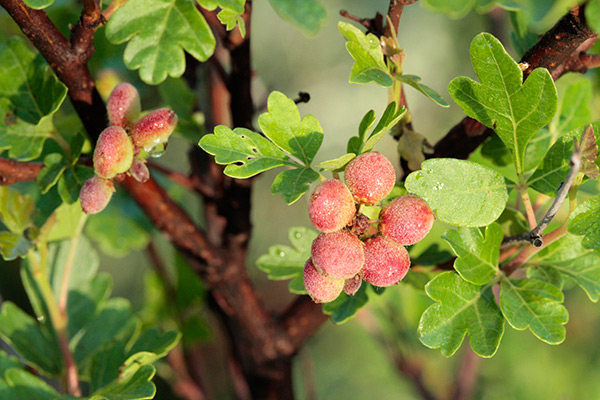White mulberry can help with weight loss, study finds
06/27/2020 / By Evangelyn Rodriguez

White mulberry (Morus alba) is a tree native to China well-known for its use in traditional medicine. According to historical texts, Ancient Chinese healers made a tincture for toothache from the bark of the white mulberry tree and a remedy for colds and flu from white mulberry leaves. White mulberry fruits, on the other hand, served as a mild laxative and as a natural treatment for dizziness, high blood pressure and diabetes.
Today, the fruits and leaves of the white mulberry tree are used to make supplements that help lower blood cholesterol and blood sugar levels. These parts, together with its bark, are also widely studied for their cardiovascular and metabolic health benefits. For instance, in a recent study, American and South Korean researchers identified the root-bark of white mulberry as an excellent source of appetite-suppressing flavonoids.
In their report, published in the Journal of Medicinal Food, the researchers looked at the active compounds present in white mulberry root-bark extract and investigated its ability to induce weight loss by reducing food intake. The researchers found that two flavonoids, in particular, function as cannabinoid (CB1) receptor antagonists, which trigger appetite suppression and make white mulberry root-bark a promising natural medicine for obesity.
Flavonoid-rich white mulberry can help control the appetite
The prevalence of obesity is increasing worldwide, making the disease a global burden with limited treatment options. According to studies, controlling the appetite of obese individuals is a potential strategy for inducing weight loss and reversing metabolic disturbances. In a bid to find an effective appetite suppressor from natural sources, the researchers screened more than 8,000 plants for CB1 receptor antagonists.
The CB1 receptor is part of the human endocannabinoid system, a molecular system that regulates and balances a variety of important processes, such as immune response, metabolism, cell communication, memory and appetite. The CB1 receptor is activated by natural cannabinoids, such as the brain chemical anandamide, and helps turn functions in the brain and body on and off.
Previous studies have found that large amounts of endocannabinoids are produced in the brains of obese mice or rats. Similarly in hungry non-obese rats, endocannabinoid levels in their forebrain are elevated and only return to normal when they are satiated. These findings suggest that inhibiting the activity of endocannabinoids with the help of CB1 antagonists — an agent that interferes with the physiological action of another — may result in appetite regulation.
Among the thousands of plants in their plant library, the researchers singled out white mulberry as a potential source of CB1 receptor antagonists. Phytochemical analysis revealed that its root-bark contains two such compounds, namely, kuwanon G and albanin G. The researchers isolated these flavonoids and, after further analysis, reported that they showed 92 percent and 96 percent CB1 receptor ligand binding inhibitory activity, respectively.
Next, the researchers tested the appetite-suppressing activity of the white mulberry extract on rats by giving them 250 and 500?mg of the extract per kg body weight. They also evaluated the extract’s ability to reduce food intake and induce weight loss by giving obese mice the same oral doses for seven weeks. (Related: Discovering the anti-obesity potential of quercetin.)
The researchers observed statistically significant and dose-dependent reductions in food intake in both the rats and mice after short- and long-term supplementation with the white mulberry extract. At 250?mg/kg body weight, the flavonoid-rich extract reduced food intake by 58.6 percent and 44.8 percent one and two hours post-food provision, respectively. At 500?mg/kg, the researchers noted 50.1 percent and 44.3 percent reductions.
The white mulberry extract also caused a 20 percent reduction in daily calorie intake in obese mice. Compared with obese mice given a blank, those who received the white mulberry extract experienced 10.4?g (22.5 percent) and 7.1?g (16.5 percent) weight loss at week 7 and baseline, respectively. These benefits were observed together with statistically significant reductions in biochemical markers of obesity and visceral fat deposit.
Based on these findings, the researchers concluded that white mulberry extracts rich in kuwanon G and albanin G may be used alone to control appetite, manage body weight and reverse metabolic disturbances in individuals suffering from obesity.
For more natural ways to prevent and reverse obesity, visit FightObesity.news.
Sources include:
Tagged Under: alternative medicine, anti-obesity, appetite suppression, cannabinoid receptor, fight obesity, flavonoids, food science, herbal medicine, Herbs, natural cures, natural medicine, phytonutrients, prevention, remedies, research, slender, weight loss, white mulberry



















